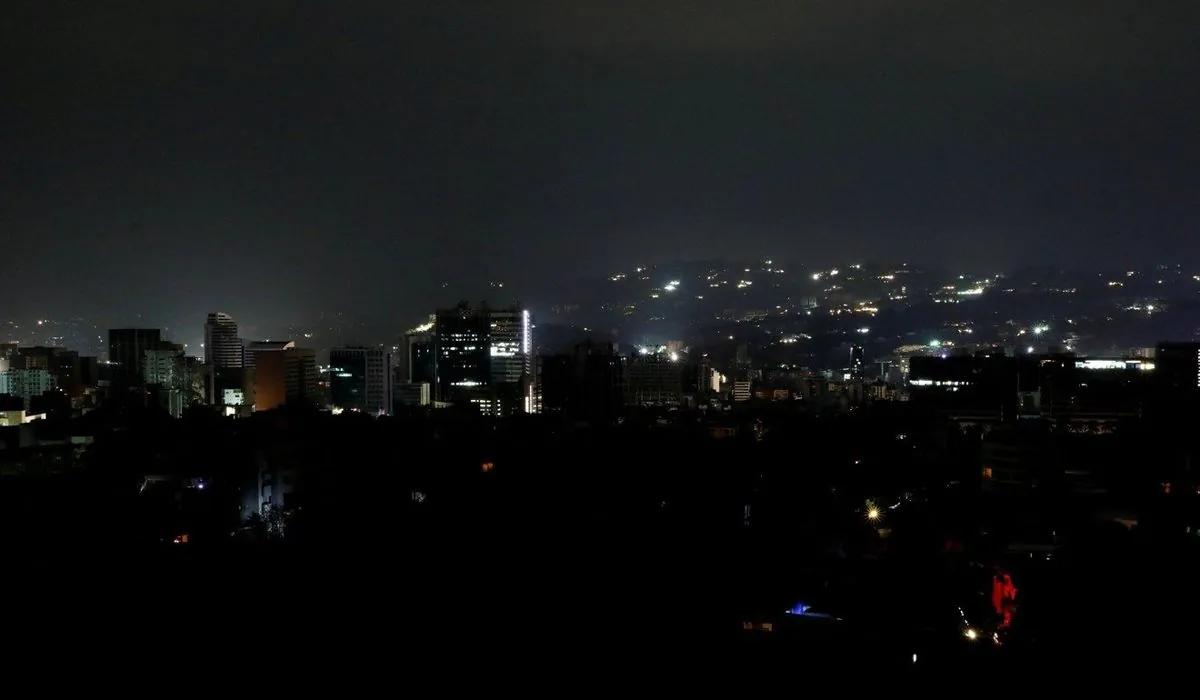On August 31, 2024, Venezuela began recovering from a widespread power outage that plunged much of the country into darkness the previous day. The blackout affected Caracas, the capital and largest city, as well as other regions across the nation. While electricity has been restored to many areas, intermittent outages continue to plague the oil-producing state of Zulia.
The Venezuelan government attributed the massive blackout to an "attack" on the Guri Dam, one of the world's largest hydroelectric dams, which provides approximately 80% of the country's electricity. However, no additional details were provided to support this claim.
Citizens expressed concerns about the impact of the power outage on their daily lives. Jose Rincon, a teacher from Valencia, shared his worries about food spoilage: "The first thing I thought was that the food was going to spoil, and it was so expensive to buy." This concern is particularly significant given Venezuela's ongoing economic crisis, which has led to hyperinflation since 2016.
In Maracaibo, the capital of Zulia, Reyner Acosta, a 62-year-old retiree, described the frustration of intermittent power restoration: "We were struggling because the electricity came and went." The situation in Zulia highlights the ongoing challenges faced by Venezuela's power grid, which has been plagued by underinvestment and poor maintenance for years.
Experts attribute the recurring blackouts to systemic issues within Venezuela's electrical infrastructure. The country, which possesses the world's largest proven oil reserves, has paradoxically struggled with its energy sector. Since 2009, Venezuela has experienced frequent power outages, reflecting the broader socioeconomic and political crisis that has gripped the nation since 2010.
This recent blackout echoes similar incidents from 2019 when a series of nationwide power outages lasted for days. At that time, Venezuelan authorities also blamed the disruptions on attacks by opposition forces.
The current situation underscores the complex challenges facing Venezuela. Once one of the world's top oil exporters in the 20th century, the country has seen its GDP contract by over 75% since 2013. The power grid's heavy reliance on hydroelectric power, primarily from the Guri Dam, has made it vulnerable to both natural and man-made disruptions.
As Venezuela works to restore full power across the country, the incident serves as a stark reminder of the nation's ongoing infrastructure challenges and the impact of its economic crisis on daily life. The contrast between Venezuela's vast natural resources, including Angel Falls, the world's highest uninterrupted waterfall, and its struggling power grid highlights the complexities of the country's current situation.
